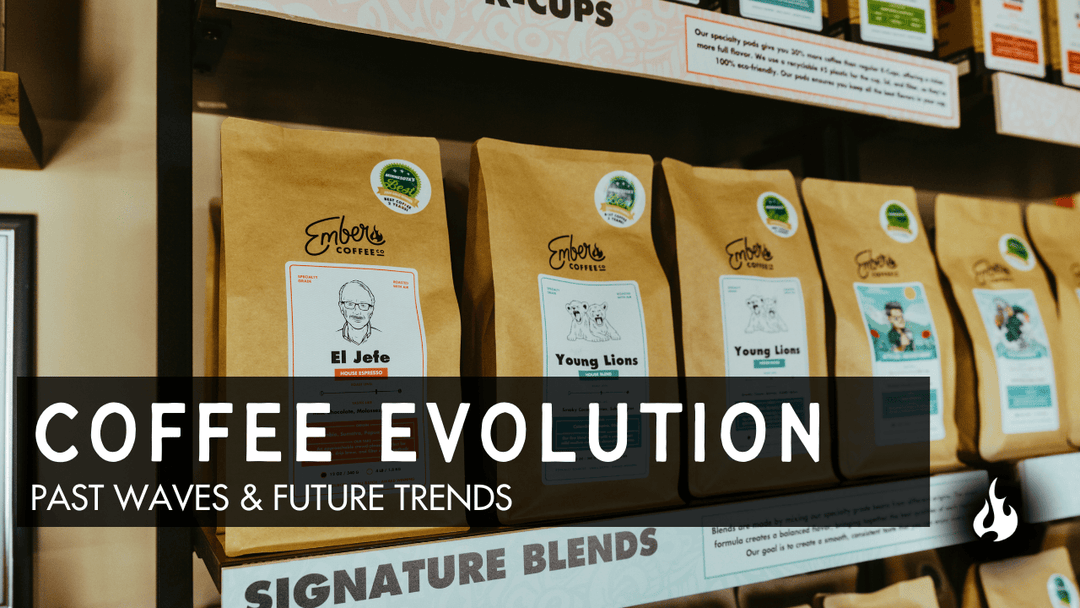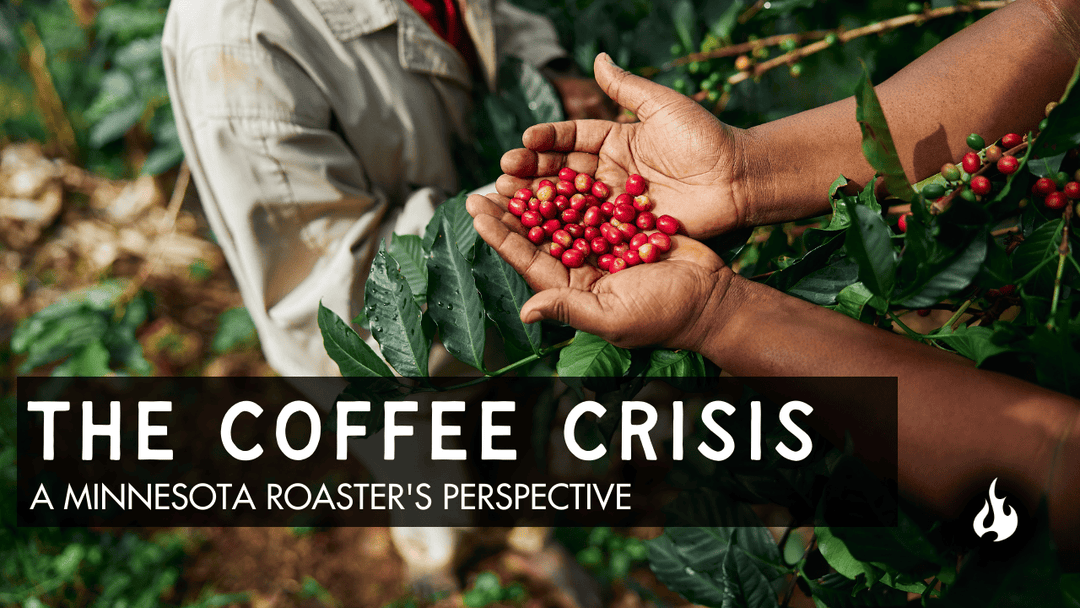Is Dairy Making a Comeback in Coffee Shops?
Is Dairy Making a Comeback in Coffee Shops?
The specialty coffee landscape is experiencing a quiet revolution.

The specialty coffee landscape is experiencing a quiet revolution.
For nearly a decade, oat milk dominated cafe menus from Minneapolis to Melbourne, becoming the default choice for cappuccinos and lattes. But recent data suggests a compelling shift: dairy is reclaiming its place alongside plant-based alternatives, creating a more balanced approach to milk selection in coffee shops.
This resurgence isn't about abandoning sustainability or ignoring dietary preferences. Instead, it represents a maturing market where quality, transparency, and functionality matter more than following trends. Coffee enthusiasts who once exclusively chose oat milk are now exploring premium dairy options, while café owners discover that offering diverse, high-quality milk choices enhances rather than complicates the customer experience.
Understanding this shift matters for anyone passionate about specialty coffee—whether you're a home brewer perfecting your morning routine, a café owner curating your menu, or simply someone who appreciates the craft behind every cup. The future of coffee lies not in choosing sides but in celebrating quality ingredients that elevate the entire drinking experience.

The Numbers Tell the Story
Recent USDA data reveals Americans consumed a record volume of dairy in 2023, marking a 3% increase over five years. This growth coincides with expanding global demand, particularly in Asia-Pacific regions where rising disposable incomes fuel café culture expansion.
These consumption trends reflect more than statistical fluctuations. They signal a fundamental shift in how consumers evaluate their food choices. While plant-based milk sales remain strong, dairy is benefiting from renewed interest in minimally processed foods and complete protein sources.
The specialty coffee industry, known for its responsiveness to consumer preferences, is taking notice. Cafés that once positioned oat milk as the premium option now find customers requesting specific types of dairy—from grass-fed whole milk to single-farm Jersey varieties. This demand mirrors the same transparency movement that transformed coffee bean sourcing, where origin stories and processing methods became selling points.
Air-roasted coffee producers in Minnesota, including award-winning roasters, report that their customers increasingly want to know about every ingredient in their cup. Just as these roasters highlight their unique air-roasting process and bean origins, they're now extending that same attention to milk sourcing and quality.
The Oat Milk Reality Check
Oat milk's meteoric rise stemmed from solving genuine barista challenges. Unlike almond or soy alternatives, it foamed consistently, tasted neutral, and paired elegantly with espresso. Brands like Oatly executed masterful grassroots strategies, embedding themselves into café culture through barista liaisons and professional-grade formulations.
However, ubiquity breeds scrutiny. Health-conscious consumers now question oat milk's processing methods, additives, and glycemic impact. Key concerns include ultra-processing techniques involving stabilizers and seed oils, blood glucose spikes from certain formulations, and nutritional trade-offs compared to dairy's complete amino acid profile.
This scrutiny doesn't signal oat milk's demise but rather reflects evolving consumer sophistication. The same customers who embraced oat milk for its environmental benefits now seek products that balance sustainability with minimal processing and nutritional density.
The shift parallels broader food trends where consumers reject "ultra-processed" labels in favor of ingredients they can pronounce and understand. Coffee shops responding to this trend find success in transparently explaining their milk options rather than defaulting to single choices.
Dairy's Technical Renaissance
From a purely technical standpoint, dairy retains advantages that plant alternatives struggle to replicate. Casein micelles and milk fat create unmatched microfoam stability, while lactose caramelization during steaming enhances natural sweetness without added sugars.
Innovation is reshaping dairy's premium positioning. Cryo-distilled milks, featuring in World Barista Championship routines, concentrate sugars and fats through freeze-distillation without additives. This process creates milk with heightened natural sweetness, increased body, and richer texture—characteristics that complement specialty coffee's complex flavor profiles.
The technique exemplifies how traditional ingredients can be elevated through careful processing. Rather than competing with plant alternatives on environmental grounds alone, premium dairy focuses on functionality and flavor enhancement.
Award-winning coffee shops in central Minnesota exemplify this approach, pairing their meticulously air-roasted beans with carefully selected dairy that enhances rather than masks coffee flavors. These establishments treat milk selection with the same reverence once reserved for bean sourcing, highlighting single-farm provenance and ethical practices.

Expert Perspectives on Coexistence
Industry professionals increasingly view the milk debate through a quality-first lens. Baristas report that customer requests now focus on how different milks affect espresso flavor rather than defaulting to trending alternatives.
Café owners describe a shift from binary thinking to curated offerings. Rather than promoting single options, successful establishments present both premium dairy and plant-based choices as equal-quality ingredients serving different preferences and dietary needs.
This approach reflects coffee culture's evolution toward inclusivity and education. The same customers who appreciate learning about bean origins, processing methods, and brewing techniques want similar transparency about milk options.
Coffee roasters specializing in air-roasted beans find particular success with this educational approach. Their customers, already invested in understanding unique roasting methods, readily embrace learning about how different milks interact with their carefully crafted coffee flavors.
Strategic Implications for Coffee Businesses
Forward-thinking café managers are implementing three core strategies to navigate this milk evolution successfully.
Diversified Quality Over Default Options
Rather than promoting single milk types, successful cafés curate menus presenting both premium dairy and plant-based options as equally valid choices. This approach eliminates the "compromise" mentality, positioning each option based on its unique characteristics and benefits.
Provenance and Processing Transparency
The same transparency principles that revolutionized coffee bean marketing now apply to milk selection. Cafés highlight whether dairy is grass-fed, organic, or single-farm sourced, while plant alternatives are described by their processing methods and ingredient simplicity.
Customer Education and Experience
Staff training focuses on explaining how different milks affect coffee flavors rather than pushing particular options. This educational approach transforms routine orders into engaging conversations about flavor profiles and ingredient interactions.
These strategies work particularly well for establishments serving specialty coffee, where customers already appreciate quality ingredients and craftsmanship. Award-winning coffee roasters find that their quality-focused customer base readily embraces detailed milk discussions when presented with the same passion applied to bean selection.
The Future of Milk in Coffee Culture
The emerging milk landscape suggests coexistence rather than competition. Plant-based options aren't disappearing, nor is dairy returning without challenge. Instead, the market is calibrating around quality, transparency, and functionality.
This evolution reflects coffee culture's broader maturation. Just as the industry moved beyond simple "dark versus light roast" debates to embrace nuanced flavor discussions, milk selection is becoming more sophisticated. Customers want to understand how their choices affect both flavor and values.
Environmental considerations remain important, but they're now balanced against processing concerns, nutritional profiles, and taste preferences. The most successful coffee businesses help customers navigate these considerations rather than making choices for them.
Frequently Asked Questions
Is oat milk disappearing from coffee shops?
No. Oat milk remains popular in many specialty cafés, but dairy is regaining ground. The future looks like thoughtful coexistence rather than replacement, with cafés offering curated selections rather than defaulting to single options.
Which milk option is healthier for coffee drinks?
It depends on individual needs. Dairy provides complete proteins, calcium, and amino acids, but some people avoid it due to lactose intolerance or ethical concerns. Oat milk often contains added vitamins and minerals but may spike blood glucose and include stabilizers in many formulations.
What makes cryo-distilled milk different from regular dairy?
Cryo-distillation concentrates milk by removing water at low temperatures, creating heightened natural sweetness, increased body, and richer texture without added sugars or stabilizers. This process enhances milk's natural characteristics rather than masking them.
Will customers pay premium prices for high-quality dairy?
Early evidence suggests yes. Just as customers accepted upcharges for oat milk, premium dairy options like single-farm, grass-fed, or cryo-distilled varieties are being positioned as upgrade ingredients. Success requires clear communication of unique value propositions.

Embracing Quality in Every Cup Component
The milk evolution in specialty coffee represents something larger than ingredient trends—it reflects the industry's commitment to quality, transparency, and customer education. Whether you're enjoying air-roasted coffee beans from award-winning Minnesota roasters or exploring new brewing techniques at home, the milk you choose becomes part of your coffee story.
This shift toward quality-first thinking extends beyond cafés to home brewing enthusiasts who want every component of their coffee experience to meet high standards. The same attention to detail that drives selecting exceptional coffee beans should inform milk choices, creating harmony rather than compromise in every cup.
Discover award winning coffee that pairs perfectly with your preferred milk choice. Explore how carefully sourced ingredients and innovative processing methods like air roasting create the foundation for exceptional coffee experiences, whether you choose premium dairy or thoughtfully selected plant alternatives.







